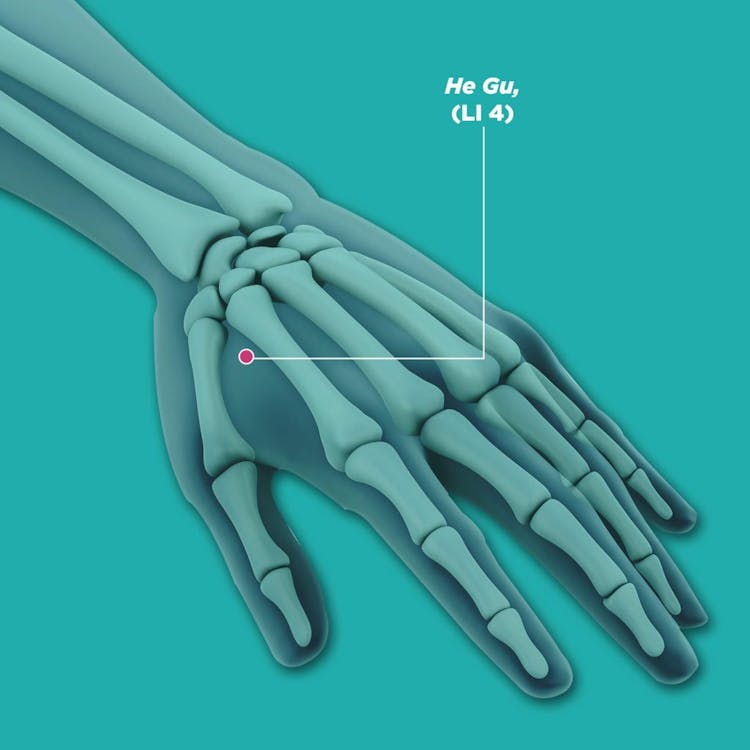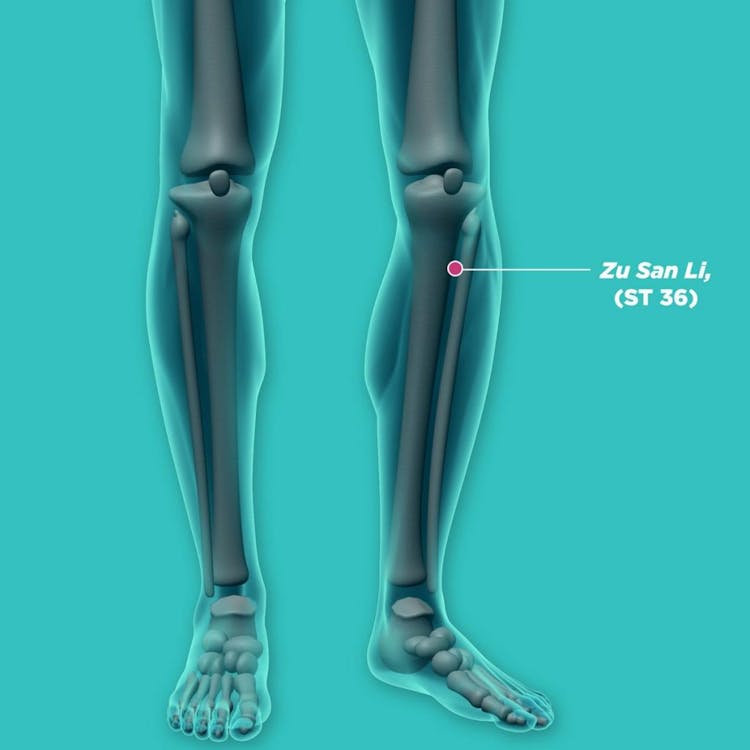Reviewed by Dr Angelica L Dumapit and Physician Brandon Yew on June 13, 2022
Best TCM Practices To Help Manage Celiac Disease Symptoms
Published | 7 min read
Celiac disease symptoms can be sneaky. Some might not even start in your gut! Learn how to spot the symptoms here as well as natural ways to manage them.

Did you know that celiac
In fact, if you eat gluten when you have celiac disease, you may experience skin rashes, headaches, fatigue, and general malaise.
So, how do you know if your symptoms are indicative of a gluten allergy or another health condition?
In this guide, we’ll discuss some of the not-so-obvious celiac disease symptoms and natural ways to manage them.
What Is Celiac Disease?

Celiac disease (CD) is an autoimmune condition in which gluten consumption triggers damage to the small intestines. Gluten is a type of protein found in barley, wheat, or rye.
During an autoimmune flare or attack, the immune system mistakes healthy substances and cells for pathogenic ones. It creates antibodies to fight them off.
When you have celiac disease, your immune system mistakes a compound found in gluten called gliadin as a harmful substance. Antibodies are sent to attack, causing the lining of your intestine to become red, inflamed, and swollen.
This makes it hard for your body to digest and absorb nutrients from food. Over time, this may lead to nutritional deficiencies, malnutrition, lack of energy, and even hair loss. All of these can be celiac disease symptoms.
What Causes Celiac Disease Symptoms?
It’s unclear as to why you can get it, but several factors can make you susceptible to the condition.
Genetics
People who have a first-degree relative – such as a parent or sibling – may have an increased risk of developing the condition.
It relates to various mutations of
Though, these mutations are common, thus suggesting that other factors may also increase your risk of CD.
Underlying medical conditions
Digestive system infections like the rotavirus or Norwalk virus during early childhood can also make you more at risk.
According to the Celiac Disease Foundation, introducing gluten to an infant before three months of age can put them at risk of the condition. A child who’s not breastfed when they were fed gluten-rich foods will also be vulnerable.
Separately, it can also stem from a number of medical disorders, including:
- Down’s syndrome
- Turner syndrome
- Ulcerative colitis
- Crohn’s disease
- Rheumatoid arthritis
- Multiple sclerosis
- Systemic Lupus Erythematosus (SLE)
- Type 1 diabetes
- Neurological disorders
- Thyroid disorders (Hashimoto’s disease)
Body constitution imbalances
Traditional Chinese Medicine (TCM) recognizes pathogenic factors to be aggravators of the condition. “Cold, Dampness, Heat, Blood Stasis and Qi (vital life force) Stagnation can disrupt Liver, Kidney, Spleen and Stomach functions. It can also upset the Small and Large Intestines. Deficiencies in these vital viscera, too, may lead to
Celiac Disease Symptoms

You might experience two or more symptoms of CD at any given time. These may improve when you switch to a gluten-free diet.
However, symptoms like damage to tooth enamel and stunted growth are indefinite, especially among children.
Digestive disorders, in particular, are more likely to affect children than adults. Examples of these are:
- Bloating
- Constipation
- Abdominal pain and distention
- Lactose intolerance
- Nausea or vomiting
- Loose, bulky, greasy, or foul-smelling stools
On the contrary, grown-ups can have symptoms that are specific to individual areas of the body, such as:
- Dermatitis herpetiformis (blistery skin rash)
- Anemia (usually from iron deficiency)
- Loss of bone density (osteoporosis)
- Pain in the joints and bones
- Mental health disorders like anxiety and depression
- Canker sores, mouth dryness, mouth ulcers, and a red, shiny tongue
- Nervous system conditions like numbness and tingling in the feet and hands, headaches, fatigue, seizures, cognitive impairment, and peripheral neuropathy
- Reproductive problems like delayed or missed menstrual periods, or male and female infertility
Tips For Managing Celiac Disease Symptoms
Firstly, healthcare providers will use your clinical history to determine if you’re at risk of CD. A physical examination will then be performed to look for prominent signs – skin rashes, weight or growth problems, or abdominal pain or swelling – of the condition. Oral issues like tooth enamel defects may also be a symptom.
A blood test can also be ordered to ascertain levels of antibodies that relate to the condition. Biopsies of the skin and small intestines, on the other hand, can help physicians spot distinct symptoms.
You should consult a licensed physician beforehand if you wish to go for TCM treatment. They can propose physical therapies such as acupuncture, moxibustion, cupping, tuina, gua sha and bloodletting, formulas, or herbal ingredients that target unique body constitutions.
Try a gluten-free diet
That famous line from Queen’s iconic hit epitomizes the first step you must take to treat your symptoms. A gluten-free diet can heal a damaged Small Intestine and ameliorate symptoms within days or weeks.
One way to do this is to consume a nutritious beverage that uses almonds, buckwheat, oatmeal, and fungus instead of bread, cereal, or pasta. Taking a probiotic supplement can also help repair the lining of your gut. Digestive enzymes also help ease digestive comfort by assisting with the breakdown of food.
Working with a dietitian, meanwhile, will provide you with knowledge on how to:
- Check food and product labels for gluten
- Curate weekly meal plans
- Make conscious choices regarding food and beverage consumption
Stimulate acupoints
When viewed through the biomedical science lens, acupuncture demonstrates the ability to regulate intense autoimmune responses and the resulting inflammation.
TCM believes that it can ensure your holistic health by strengthening gastrointestinal functions, dispelling disease-causing pathogens, and promoting positive Blood and Qi circulation.
The acupoints that might help are:
- He Gu (LI4)
- Zhong Wan (RN12)
Yin Ling Quan (SP9)- Tian Shu (ST25)
- Shui Dao (ST28)
- Zu San Li (ST36)
- Shang Ju Xu (ST37)
- Xia Ju Xu (ST39)
It’s worth noting that acupressure can only alleviate mild symptoms. If they persist or are severe, seek consultation with a TCM practitioner.
Use healing formulas
Adding herbal ingredients to a soup or porridge can help correct imbalances in the body. Some of these are:
- Dendrobium (Shi Hu)
- Ginseng (Sha Shen)
- Poria (Fu Ling)
- Cablin potchouli (Huo Xiang)
- Fortune eupatorium (Pei Lan)
- Kudzuvine root (Ge Gen)
- White atractylodes (Bai Zhu)
- Fox nuts (Qian Shi)
- Coix seeds (Yi Yi Ren)
- Lotus seeds (Lian Zi)
- White hyacinth beans (Bai Bian Dou)
- Chinese yam (Shan Yao)
You can also consider using herbal formulas to ease symptoms, including:
- Ping Wei San
- Xiang Lian Wan
- Xiao Yao San
- Wu Mei Wan
- Tong Xie Yao Fang
- Ban Xia Xie Xin Tang
- Ge Gen Qin Lian Tang
- San Huang Xie Xin Tang
- Shen Ling Bai Zhu San
- Xiang Sha Liu Jun Zi
Physician Yew cautions, “Please bear in mind that different pathologies behind celiac disease correspond to different underlying body constitutions. It’s strongly advised that you don’t self-medicate without first undergoing a thorough consultation and proper assessment by a TCM practitioner.”
Early intervention is the best way to stop
References
- Celiac Disease Foundation. Responding to EAT Study, Expert Warns Against Introducing Higher Gluten Dose to Infants.
- MedlinePlus. Celiac Disease.
- NHS. Celiac disease.
- National Institute of Diabetes and Digestive System and Kidney Diseases. Symptoms & Causes of Celiac Disease.
- National Institute of Diabetes and Digestive System and Kidney Diseases. Diagnosis of Celiac Disease.
- National Institute of Diabetes and Digestive System and Kidney Diseases. Treatment for Celiac Disease.
Share this article on














